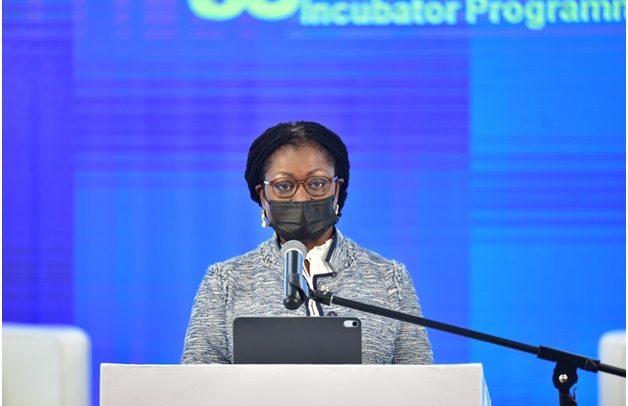Ms Elsie Addo-Awadzi
WOMEN-OWNED businesses tend to remain smaller and less profitable than those of men in Ghana, owing in part to the lack of access to business support services and lack of access to finance, Second Deputy Governor of the Bank of Ghana, Elsie Addo-Awadzi, has noted.
Ms Addo-Awadzi, who was speaking Thursday at the graduation ceremony for Cohort 1 of the Standard Chartered Bank (Ghana) Women in Technology Business Incubator Programme, said while Ghana’s private sector was dominated by women entrepreneurs, second only to Uganda according to the 2019 MasterCard Index of Women Entrepreneurs, data suggests that female entrepreneurs in Ghana are eight percent less likely than men to get access to the kind of capital and other financial services and products that they need to start or scale up their businesses.
Making reference to the World Bank’s 2017 Global Findex Survey, she said the participation of female entrepreneurs in Ghana’s fast-growing technology sector remained marginal although there was great potential for women to play a key role in that space.
She therefore called on banks to support women-owned businesses to access business support that will catapult them to the top.
She said the launch of the WIT business incubator programme, particularly in the midst of the Covid-19 pandemic with its attendant job losses and business failures, was a bold step towards helping to solve multiple policy challenges including women’s access to finance, job creation especially for youth, making businesses more resilient through the use of technology, and ultimately promoting a resilient bounce back of the Ghanaian economy post pandemic.
“Ten months down the line, I am elated to be here as Special Guest of Honour at this graduation ceremony for the first cohort of the programme. It is gratifying to note that Standard Chartered Bank (Ghana) and its partner Ashesi University moved quickly into action after the launch, to make the programme a reality.
“It is even more heart-warming to note that the programme received a high level of interest from the public, with a total of 220 applicants of which 14 were selected from five regions across the country following a rigorous process. These 14 beneficiaries received entrepreneurship skills training over a four-month period, following which five of these firms received additional business support over a 10-week period and a grant of GH¢57,000 each to help scale up their businesses,” Ms Addo Awadzi stated.
“This programme has no doubt been a major confidence booster for the young female entrepreneurs behind these 14 businesses that graduate today. The programme has provided them with world-class business and entrepreneurial skills and exposure, which will go a long to help them build competitive and sustainable businesses that will stand the test of time. The programme has also better prepared them to present their businesses to banks, private equity firms, and other investors to obtain financing for the next stage of growth,” she added.

